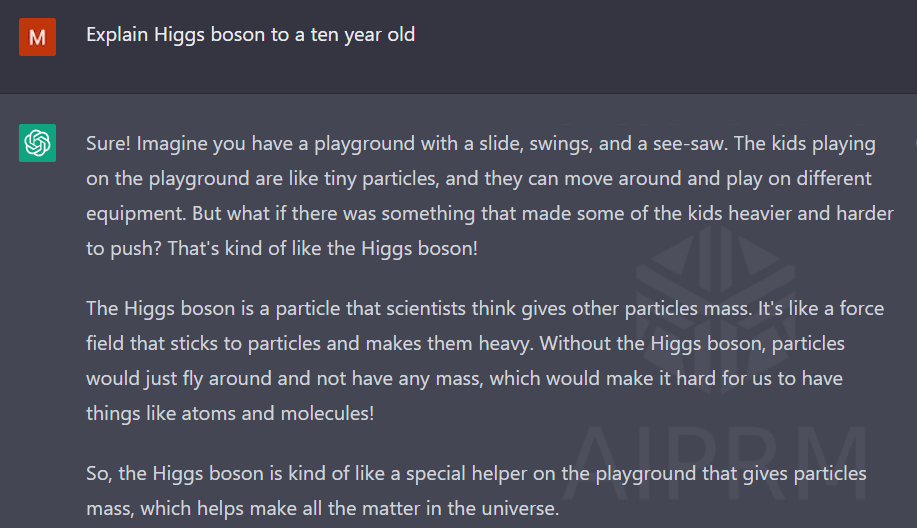Here, we’ll explore the promise of Conversational AI and the future of customer service. Will AI replace human agents? The answers are nuanced.
On November 30, the public was first given access to ChatGPT. This conversational AI chatbot’s capabilities have raised many questions about the future of business operations and AI’s impact on the job market.
With investors betting big on AI, a question arises ‒ will AI chatbots be the panacea for all ills? How will Conversational AI affect the future of Customer Service? Will human agents become redundant?
The answers are nuanced. But one thing is certain, the future of customer service is poised for a significant transformation.
What is Conversational AI?
In simple terms, Conversational AI is a computer program that is trained to understand and generate human-like text. Think of it as a chatbot that can answer questions, hold conversations, write (quite funny) jokes, songs, children’s stories, and much more. When interacting with this AI system, you feel like you’re talking to a real person, even though it’s just a computer program.
The power of these programs lies in remembering context and their capability of correcting themselves when wrong. Next-gen Conversational AIs have a learning model that improves over time with user feedback, offering better responses with each interaction. So, the more users interact with it, the smarter it gets.
How is Conversational AI different from other chatbots?
The most advanced conversational AI system to date ‒ ChatGPT ‒ is a true jack-of-all-trades. It can compose music, code software, and write lyrics, emails, and blog posts, creating content directly in several languages.
What sets it apart from other AI language iterations is its use of a generative model. It predicts the next word in a sequence based on the words that came before it, resulting in more conversational interactions.
This chatbot can mimic writing styles, avoid specific interactions, and learn from your inquiries thanks to its dialogue format. In other words, it may refine responses following additional questions, admit mistakes, challenge faulty premises, and then store what it has learned for future use.
What characterizes ChatGPT is its ability to present complicated concepts in simple terms. Think of head-spinning topics such as the Higgs boson. A simple Google search will give you a plethora of information, but you won’t understand much of it unless you are a particle physicist.
ChatGPT can simplify complex subjects into digestible chunks of information that the rest of us can understand ‒ even a 10-year-old.

Conversational AI and the future of Customer Service

Conversational AI engines learn from the information they index. In the case of today’s most advanced conversational AI, ChatGPT, that is the database of internet knowledge and validated data sets.
That’s why ChatGPT can answer questions about everything that can be found online. However, this also makes it susceptible to biased responses, as the internet is flooded with biased opinions. The program is only as good as the data it is fed.
But when these types of AI-powered chatbots are fed with refined, validated, industry-specific content from deep databases, they can then build supreme knowledge based on that source – and deliver it conversationally to customers.
Generative AI will offer the most compelling use case for contact centers, as other bot platforms tend to be more scripted and less creative.
How can Conversational AI be implemented in Customer Service?
Conversational AI applications can be easily integrated with industry-specific knowledge bases through their API. Merging this organized information repository with AI-powered natural language processing chatbots will grant customers instant access to accurate self-service experiences that feel human-like.
Why chatbots will not replace human agents

Unquestionably, these next-gen chatbots will have an immediate impact on a number of jobs, including data entry and processing, basic programming, and ‒ simple customer support roles. Still, these jobs won’t entirely disappear but pivot into a new direction.
Indeed, generative AI will put a jetpack on customer service efficiency and step into the shoes of clunky, rule-based chatbots. However, it won’t replace human agents. Why? Below are four reasons supported by survey data.
1. Customers believe that businesses have lost touch with the human element of CX
A recent study by PwC found that a whopping 59% of all customers believe that businesses have lost touch with the human element of CX. This sentiment is echoed by 82% of US consumers and 74% of non-US consumers who desire more human engagement in the future.
While AI and automation can help increase customer service efficiency, the personal touch and human approach will remain important for a great Customer Experience.
2. Customers place twice as much importance on friendly agents as on low wait times
These findings are supported by the latest Qualtrics’ Global Consumer Trends Report for 2023. It revealed that customers crave more human connection when interacting with a brand and that companies must “act more human” to win their loyalty.
When asked what makes them happy, customers placed twice as much importance on friendly agents as on low wait times.
3. People are not comfortable with chatbots resolving their conflicts or trusting them with payments
According to a recent survey conducted by Userlike ‒ a chatbot solutions provider ‒ customers are willing to chat with a bot for simple inquiries such as product specifications, order status and shipping policies.
However, only 23% of those polled were confident in relying on a chatbot to resolve conflicts, and just 30% were comfortable using one to make a payment.
In fact, 60% of respondents indicated that they would be willing to wait in a queue if it meant speaking with a human agent rather than receiving instant assistance from a chatbot.
Surprisingly, nearly all of the survey respondents allowed chatbots to help them with one task: connecting them with a human customer support representative.
4. Technology can often be impersonal and frustrating
While AI-powered customer service is efficient, it lacks the emotional intelligence that comes with human interaction, particularly when dealing with complex or emotionally charged situations. Have you ever yelled at your phone’s automated message while trying to reach a live person at a call center?
Humans are social beings, with a deep-seated need to connect with others. This need is mirrored in our desire for social interaction and relationships, and in this age of advanced technology, people crave human connection even more. If customers have some say in the matter, it’s unlikely that chatbots will eliminate the need for human reps.
A growing body of research shows that if customers have some say in the matter, it's unlikely that chatbots will eliminate the need for human reps any time soon.
Related: The side effects of over-digitalization

STRATEGY GUIDE
6 Simple Strategies To Improve Customer Retention
Actionable insights and proven techniques to keep your customers coming back.

In summary
Through their integration with industry-specific knowledge bases, conversational AI-powered chatbots have the potential to usher in a new era of customer service.
While next-generation AI will most certainly be the end of clunky chatbots, it will not replace human agents any time soon. Study shows that a personal connection still plays a major role in the Customer Experience.
All in all, Conversational AI chatbots offer a promising future in the field of customer service. It is up to businesses to explore the benefits of this technology while striking a balance with human connection to gain customer loyalty.
FrontLogix is a next-gen Customer Experience (CX) BPO that skillfully merges technology with human assistance. Our use of automated experiences reflects our commitment to staying ahead of the curve while never losing sight of the importance of human interaction. We believe that this balance is key to fostering authenticity and brand loyalty among our customers.
Contact us today to discuss how we can help you ace your Customer Support.

